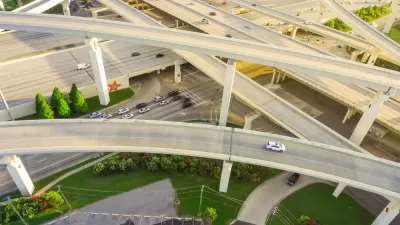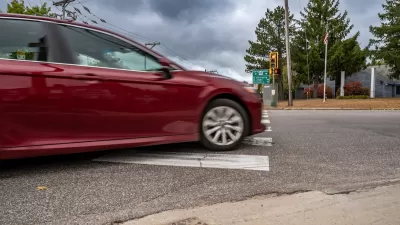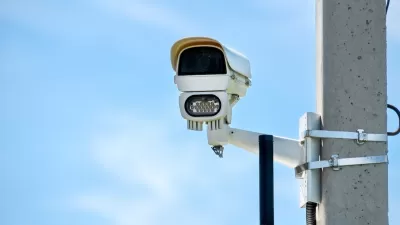Texas leads the nation in automobile-related deaths, and the state is considering spend a large amount of money to lower the number of fatalities on the state's highways.

Dug Begley reports on a potential massive infusion of cash devoted to improving traffic safety on Texas highways.
"Roughly two-thirds of a $600 million down payment aimed at decreasing deaths along Texas highways will go to straightening roads, improving lighting and adding guardrails," according to Begley as part of a traffic safety plan under consideration by Texas Department of Transportation (TxDOT) officials.
"The Texas Department of Transportation proposes spending $390 million, 65 percent of the total safety money set aside by the Texas Transportation Commission, to reduce incidents in which drivers veer from the roadway," adds Begley for more specifics about the biggest chunk of funding included in the plan. Those kinds of improvements are intended to improve "departure incidents," which accounted for 41 percent of the serious injury and fatal crashes that occurred statewide in 2018.
"Another $60 million will go toward pedestrian improvements, which claimed 10 percent of the money despite being more than 21 percent of the roadway fatalities statewide," according to Begley.
The unprecedented total would spend $300 million each of the two years, if the safety is funding is approved as part of the TxDOT’s $76.2 billion ten-year Unified Transportation Program. That larger plan is expected for approval in August.
FULL STORY: TxDOT to commit $600 million to reducing roadway deaths

Trump Administration Could Effectively End Housing Voucher Program
Federal officials are eyeing major cuts to the Section 8 program that helps millions of low-income households pay rent.

Planetizen Federal Action Tracker
A weekly monitor of how Trump’s orders and actions are impacting planners and planning in America.

Ken Jennings Launches Transit Web Series
The Jeopardy champ wants you to ride public transit.

Rebuilding Smarter: How LA County Is Guiding Fire-Ravaged Communities Toward Resilience
Los Angeles County is leading a coordinated effort to help fire-impacted communities rebuild with resilience by providing recovery resources, promoting fire-wise design, and aligning reconstruction with broader sustainability and climate goals.

When Borders Blur: Regional Collaboration in Action
As regional challenges outgrow city boundaries, “When Borders Blur” explores how cross-jurisdictional collaboration can drive smarter, more resilient urban planning, sharing real-world lessons from thriving partnerships across North America.

Philadelphia Is Expanding its Network of Roundabouts
Roundabouts are widely shown to decrease traffic speed, reduce congestion, and improve efficiency.
Urban Design for Planners 1: Software Tools
This six-course series explores essential urban design concepts using open source software and equips planners with the tools they need to participate fully in the urban design process.
Planning for Universal Design
Learn the tools for implementing Universal Design in planning regulations.
Ada County Highway District
Clanton & Associates, Inc.
Jessamine County Fiscal Court
Institute for Housing and Urban Development Studies (IHS)
City of Grandview
Harvard GSD Executive Education
Toledo-Lucas County Plan Commissions
Salt Lake City
NYU Wagner Graduate School of Public Service





























